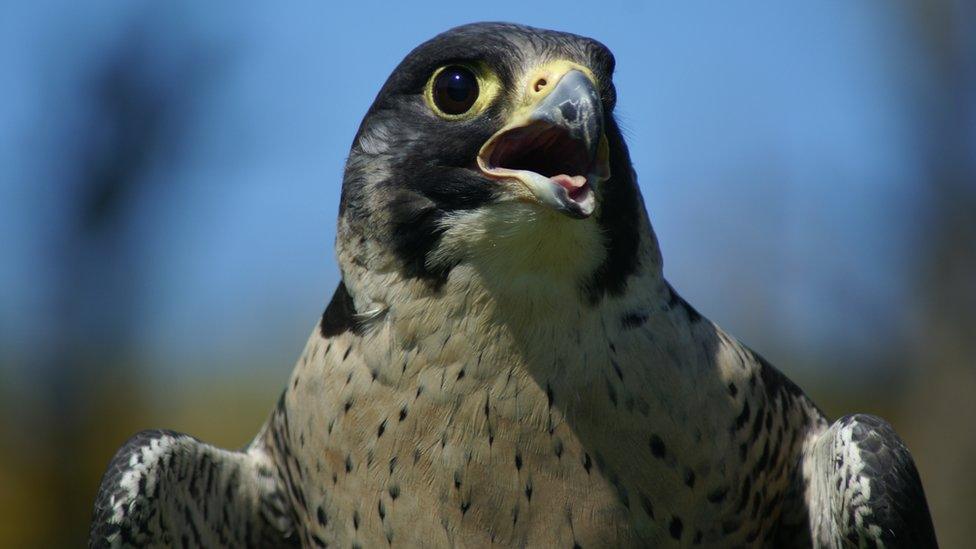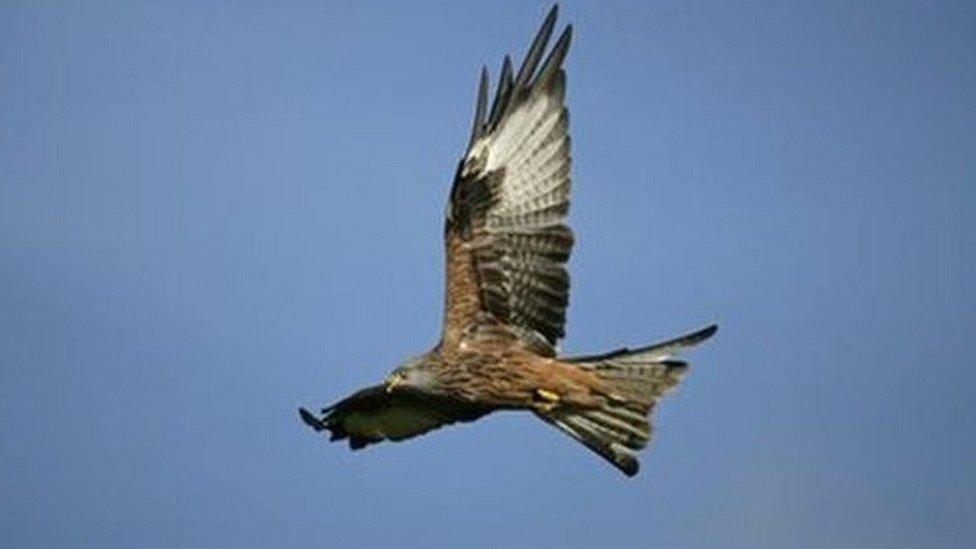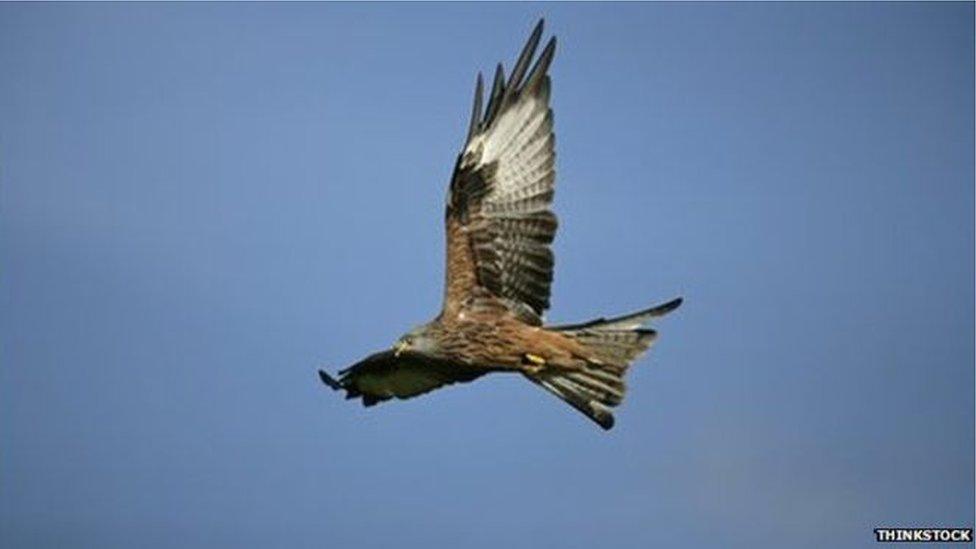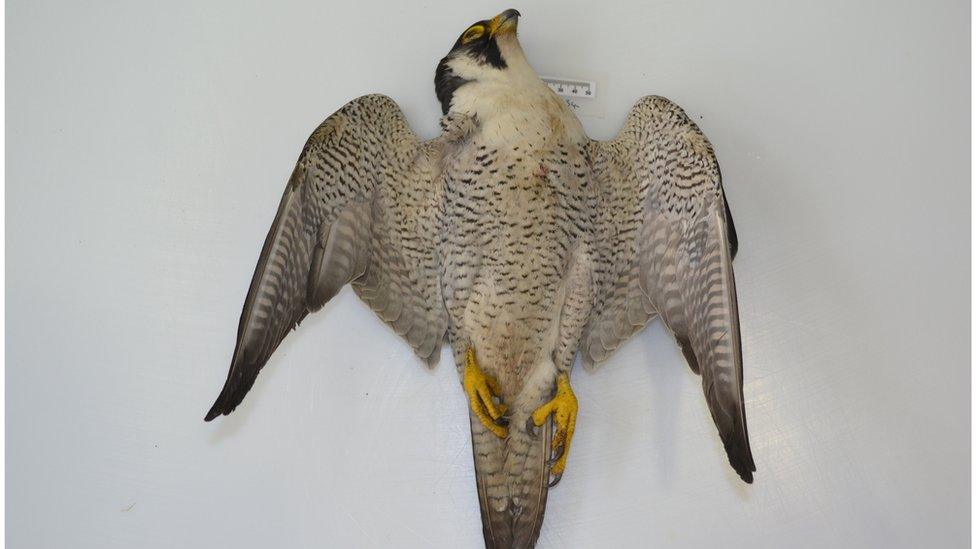Police using drones to protect birds of prey
- Published

Several peregrines are lost in Northern Ireland every year to illegal poisoning, shooting or trapping
Police in Northern Ireland are using drones to patrol the nest sites of protected birds of prey.
They have been used to monitor areas where the birds are being persecuted.
It is thought to be the first time the technology has been used in this way in the United Kingdom.
It follows dozens of cases of poisoning across Northern Ireland over the last few years. According to the PSNI, there were 44 reports of birds of prey being killed illegally between 2009 and 2014.
Several peregrines are lost every year to illegal poisoning, shooting or trapping, said the Northern Ireland Raptor Study Group, which has been helping with the survey work.
The Northern Ireland Environment Agency is overseeing the work, which is part of a wider initiative to protect the nests of peregrine falcons.
The species often raise its young in quarries or on cliff faces.
'Indiscriminate killer'
There are around 80 breeding pairs of peregrines in Northern Ireland, but only about half of them fledge young every year.

Red Kites have also been targeted in the past
While numbers of peregrines have increased in recent years they are still being persecuted, said wildlife officer Jon Lees.
"They can also be disturbed to the point of nest abandonment by people who just want a closer look or a photograph," he said.
PSNI wildlife liaison officer, Emma Meredith, said the drones provided the ability to survey hard-to-reach areas.
She added the new technology means that "there is no hiding place for those who seek to persecute wild birds".
Ms Meredith said the PSNI takes "all types of crimes seriously and this includes wildlife crime such as shooting, poisoning or trapping of birds of prey".
"On occasions, baits (such as a rabbit carcass or sausages) have been laid laced with poison in the public domain," she said.
She added that some of the food left out to poison the birds was found to contain the banned and "seriously dangerous" substance, Carbofuran.
"Be under no illusion, this type of poison is an indiscriminate killer and can also be fatal to humans, not only wildlife suffers but also any child, adult or pet could find and ultimately consume these poisoned baits."
- Published24 November 2016

- Published5 May 2016
